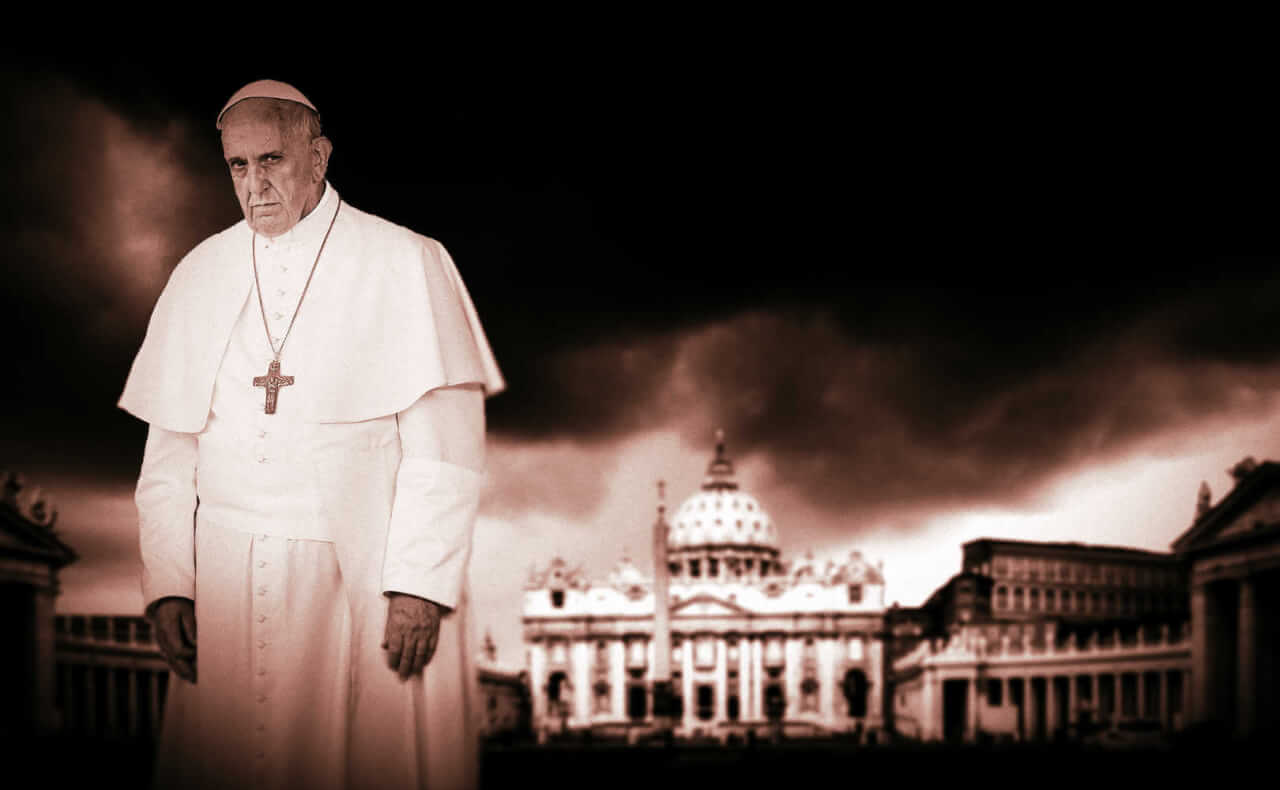“Gaslighting,” writes Dr. Stephanie Sarkis at Psychology Today, “is a tactic in which a person or entity, in order to gain more power, makes a victim question their [sic] reality. It works much better than you may think. Anyone is susceptible to gaslighting, and it is a common technique of abusers, dictators, narcissists, and cult leaders.”
For those who have only recently become aware of the alarming cognitive dissonance in the pontificate of Pope Francis, Sarkis’s article, entitled “11 Warning Signs of Gaslighting,” offers some valuable insights into what Catholics around the globe are being subjected to by the Vatican – often completely unawares.
Gaslighters, explains Sarkis, tell blatant lies. They deny what they’ve said, even if there’s evidence. They use things you care about to gain leverage. They wage a long-term campaign of manipulation that breaks down their victims over time. They say one thing and do another. They use positive reinforcement – saying things you agree with or make you feel good – to trick you into thinking “they aren’t so bad” and doubting your own perception. They intentionally use confusion to uproot your “sense of stability and normalcy” so you’ll “constantly question everything.” They project their bad behavior on you. They form alliances of people against you – either real or imagined – and use them to isolate you. They dismiss their victims as “crazy” to damage their credibility when they speak out against the abuse. And they accuse others of lying so they can be the source of “truth.”
With these warning signs in mind, let’s look at the most recent example of papal gaslighting. We’ve already examined how the pope has recently been hammering home of the idea that his critics – particularly in his handling of sexual abuse among the clergy – are in league with Satan, the “Great Accuser,” and that he and his fellow complicit bishops are innocent and being persecuted like Christ. Today, in an address given in Estonia, the pope took things farther, saying young people “become outraged when they do not see a clear condemnation of sexual and economic scandals.”
A clear condemnation? Who is in the best position to do that? Who is the person of highest authority in the Church who has been accused of complicity in covering up abuse? Who is it who said, “I am not going to say a word about this“?
But wait, there’s more:
Francis spoke Sept. 25 after hearing testimonies from several young Estonians. He told them that young people have an ability to tell adults when they are ignoring “a reality that already exists.”
“Some of you … have the courage to say: ‘Don’t you see that nobody is listening to you any more, or believes what you have to say?’” said the pontiff.
“We … need to be converted, to realize that in order to be at your side we need to overturn many situations that, in the end, keep you at a distance,” he said.
Nobody is listening to what the pope has to say anymore, because he has lost all moral credibility. Nobody believes him because he is a liar, saying one thing one day and another the next. We are kept at a distance because we have the distinct impression that he despises the faith we hold dear and that he will do or say anything to hold on to power just long enough to destroy that faith.
And yet here he is, once again, offering “positive reinforcement” in his message today, saying exactly what the people in his audience are feeling as though he cares about it, trying to convince them he’s not part of the problem. “This,” writes Sarkis, “is a calculated attempt to keep you off-kilter – and again, to question your reality.”
From Lettergate to the Scalfari Strategy, from near-constant self-contradiction to editing or intentionally mistranslating papal remarks after the fact to make them appear more acceptable, and through the frequent and deliberate exercise of the Perón Rule, it has become undeniably clear that this is a Vatican that can’t be trusted.
But for Catholics, the Vatican – and particularly, the person of the pope – is the one thing in this world we should most be able to trust. That’s arguably the most damning bit of gaslighting in this whole fiasco. Sarkis writes that gaslighters “know confusion weakens people”:
Gaslighters know that people like having a sense of stability and normalcy. Their goal is to uproot this and make you constantly question everything. And humans’ natural tendency is to look to the person or entity that will help you feel more stable – and that happens to be the gaslighter.
Now that you know the warning signs, watch out for them. Your filial devotion to the papacy does not mean you must silently endure the abuse of the man who should be your spiritual father. Stand up, speak out, and push back.


